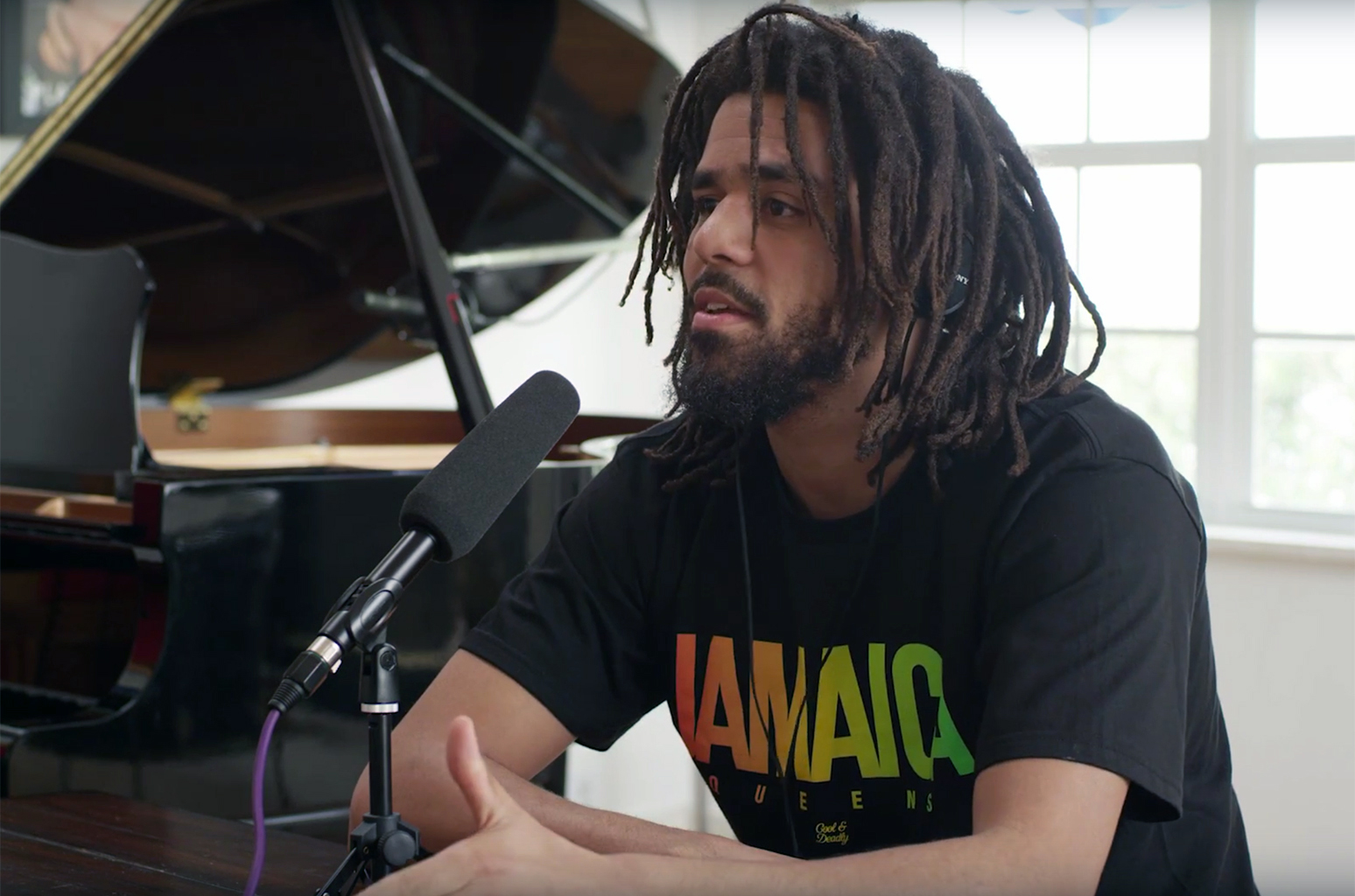Rapper J. Cole can spit enlightening bars about meditation for someone who wishes he did it more often.
“I’m talking about [meditation] as if, I do it all the time,” he told an interviewer last year. “I think people think that. [But] I do it when I get a lot of anxiety, when there’s a stressful situation. I want to become disciplined to where it is a part of my life everyday.”
He really shouldn’t downplay himself. His description of meditation hints at a deep understanding of what it produces, mindfulness.
“It’s like a form of prayer, right?” the interviewer asks. J. Cole, correctly, disagrees.
“I do them separately. A prayer. . .I’m asking for guidance and help. Meditation for me is more like being present. I’m not trying to think anything. I’m just still, observing. So, if my mind is racing, and it might be nerves. Or it might, there’s a bill due. Or it might be, this is happening in the family. I’m noticing it and trying to not fight it, and bring my attention back to my breathing, something that’s currently happening.”
He goes on:
“I don’t want to be a slave to my thoughts. I feel like that’s how I’ve been living my life. Ninety eight percent of my thoughts aren’t even my thoughts. It’s something I saw on Twitter, heard on TV, something my mom told me when I was younger. So, these thoughts are like fears or worries or ideas from other people. That stuff is controlling me.”
This is spot on. It reminds me of the metaphor angel Kyodo williams, the Zen Buddhist priest, uses for our minds:
“[It’s] kind of like that drawer that collects everything in your house, where you say, ‘Oh, but wait a minute, someone lived in this house before me. And some of that stuff is not mine. Actually, this is not mine. That’s my mom’s. This is not mine; that’s the inheritance of white supremacy,’ or, ‘That’s the inheritance of generations of oppression and marginalization that subjects me to habitually feeling less-than, even if the current situation has no intent to make me feel that way.’”
As I recently wrote (and explained on my podcast), mindfulness is not only being able to focus but also — and more importantly — being aware of how you are relating to what’s happening right here, right now.
The ways you relate to what’s happening depends on many things, but they’re most shaped by trauma you’ve been through. Maybe your father subtlety abused you emotionally when you were young — nearly all parents do to some degree — or maybe the color of your skin is being used by those in power to turn others against you.
Short of healing our trauma through therapy (and fighting capitalism, white supremacy, patriarchy, etc.), the best we can do is have compassion for ourselves.
And J. Cole nails it: “If you catch the fact that [your mind is wandering,] just enjoy the fact that you can recognize that it’s hard,” he says. “Like, ah man, this is hard for me, it’s okay, let me just bring it back.”
When someone who’s made five top ten hits says something like, “This is hard for me, it’s okay,” we really should listen.
Ready to get serious about meditation?
Sign up for my weekly email on meditation and bringing mindfulness to the stuff that matters — work, relationships, and politics.
And check out my podcast, Meditation for the Masses, on Apple Podcasts, Google Play, and wherever else podcasts are available.
Listen to the podcast version with more content
My podcast, Meditation for the Masses, takes meditation out of faraway monasteries, expensive retreat centers, and corporate America, and brings it to the things that matter most to people who work for a living—work, relationships, and politics. It’s mindfulness for the 99%.
Podcast: Play in new window | Download
Subscribe: Apple Podcasts | RSS | More
